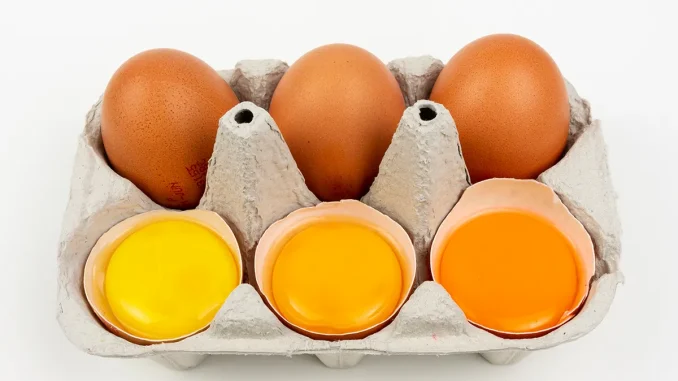
When you crack open an egg and see a vibrant orange yolk or a pale yellow one, you might wonder if the color actually matters. The truth is, yes—it does, but maybe not in the way you think. The color of the yolk is largely influenced by the hen’s diet, not the freshness or nutritional value of the egg itself...CONTINUE READING THE FULL ARTICLES HERE
A hen that eats a diet rich in carotenoids—natural pigments found in plants like corn, marigold petals, and leafy greens—will lay eggs with darker, more orange yolks.
These carotenoids are antioxidants, so while the yolk’s color doesn’t necessarily mean the egg has more protein or vitamins, it can reflect a healthier or more natural diet.
On the other hand, hens fed mostly grains or wheat might produce eggs with lighter, yellow yolks.
Commercial egg producers sometimes even add natural color enhancers to feed to make yolks appear darker, as many consumers associate deeper yolks with freshness and better quality.
So, does yolk color affect taste? Some say darker yolks are creamier and richer in flavor, especially in pasture-raised or free-range eggs.
While it’s not a strict rule, yolk color can give you a glimpse into the hen’s lifestyle and diet, making it more than just a matter of appearance.
Kindly Follow Our WhatsApp Channel
Disclaimer: This content including advice provides generic information only. It is in no way a substitute for a qualified medical opinion. Always consult a specialist or your own doctor for more information. NEWSHOUR does not claim responsibility for this information.
